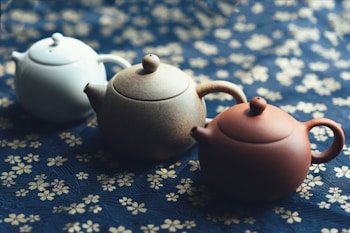 Personal Data in French
Personal Data in French
Explore commonly used vocabularies related to personal data in the French language.

personne âgée
The French term 'personne âgée' refers to an individual who is considered to be in the later stages of life, typically someone who is retired or beyond middle age. This phrase is used respectfully to denote seniors and is commonly used in both social contexts and formal discussions related to aging and elder care.

processus de séparation
In French, 'processus de séparation' refers to a method or series of actions taken to separate different components or elements. This term is often used in scientific, legal, or organizational contexts where specific methodologies are employed to differentiate or divide entities for clarity, efficiency, or analysis.

procéder au divorce
In French, 'procéder au divorce' refers to the legal procedure of dissolving a marriage. It encompasses all the necessary steps and actions involved, including filing petitions, negotiating terms, and finalizing agreements between the parties involved. This phrase is commonly used in legal contexts, particularly in discussions surrounding family law.

préadolescent
In French, 'préadolescent' refers to the stage before adolescence, typically encompassing children who are between the ages of approximately 9 to 12 years old. It describes individuals who are transitioning from childhood into the more complex emotional and social dynamics of their teenage years. The term is used in educational and psychological contexts to discuss the developmental characteristics and needs of children in this age group.
préfixe
In French, the word 'préfixe' is used in a similar way as in English to denote a group of letters placed before a root word to modify its meaning. In the context of language and linguistics, 'préfixe' is often employed to discuss the structure of words, such as how adding a prefix can change a verb into a noun, or alter the meaning of an adjective. It is also used in various fields such as mathematics, programming, and telecommunication, where prefixes help to clarify concepts.

prénom
The French term 'prénom' refers to the personal name given to someone, which is used before their surname. In French culture, a first name is typically chosen for a variety of reasons such as family tradition or personal preference, and it is an essential part of a person's identity, just as it is in English-speaking countries.
pseudonyme
In French, the word 'pseudonyme' refers to a fictitious name used by an author or individual to conceal their true identity, similar to its English counterpart. It is commonly used in literary and artistic contexts, allowing creators to publish their work under a name that may differ from their birth name, often to maintain privacy, create a distinct persona, or for stylistic reasons.

quelques années
The phrase 'quelques années' in French directly translates to 'having few years' in English. It is commonly used to refer to a small number of years, often in contexts such as describing age, duration, or time periods. For instance, one might say 'J'ai quelques années d'expérience' meaning 'I have a few years of experience.' The term conveys a sense of limited quantity and is frequently used in both formal and informal conversations.
remariage
The French word 'remariage' refers to the act of getting married again after being previously married. It is used in a similar context as in English and can describe both individuals who have lost a spouse or those who have divorced. It is important in conversations about family dynamics and personal relationships.

rester veuf
In French, 'rester veuf' is used to describe the state of a man who has lost his wife and chooses to live without remarrying. It emphasizes the aspect of remaining without a spouse and can be used in various contexts, such as discussing life choices, emotions tied to loss, and societal perceptions of single men after the death of their partners.

retenir le nom de famille
In French, 'retenir le nom de famille' refers to the action of keeping or remembering a person's last name. It is commonly used in legal, administrative, and social contexts where the identification of an individual by their surname is important. This phrase can be relevant in discussions about family records, name changes, or when acknowledging someone's heritage.

résider
The French word 'résider' is used to describe the act of living or having a permanent home in a particular place. It often implies a sense of stability and long-term occupation, and can refer to individuals or groups. For example, one might say 'Je réside à Paris' meaning 'I reside in Paris', indicating that Paris is their home.

safari
The word 'safari' originates from the Swahili word for 'journey' and is used in French to refer to an expedition to observe or hunt animals in their natural habitat, particularly in African countries. It is commonly associated with tourism and adventure travel, where visitors embark on guided tours to experience wildlife and nature.

sari
The word 'sari' refers to a traditional garment worn by women in South Asia, particularly in India. In French, it is used the same way as in English, to describe this long piece of cloth that is draped elegantly around the body. The sari is not only a symbol of cultural identity but also a versatile piece of clothing that can be styled in various ways, reflecting the fashion trends of the region.

situation matrimoniale
The French term 'situation matrimoniale' refers to an individual's legal relationship status, typically denoting whether they are single, married, divorced, or widowed. It is commonly used in official documents, surveys, and forms to assess an individual's family status, which can influence various legal and social considerations.
surnom
The French word 'surnom' refers to a name that is used to describe someone in a more informal or affectionate way, rather than their official name. It can be based on a person's characteristics, personality, or even a playful trait. 'Surnom' is often used among friends and family, and it can also be seen in various cultural contexts, such as in literature or sports.

séparation
The French word 'séparation' refers to the act of dividing or keeping apart. It is commonly used in various contexts, such as legal separation in marriage, physical separation of objects or spaces, and even emotional or social separation. In conversations, it can denote the process of becoming distinct or disconnected from something, reflecting both a physical and abstract meaning.

séparé
In French, the word 'séparé' is an adjective used to describe something that is divided or not together. It can refer to physical objects that are apart from one another or can describe emotional or relational states, such as when two people are no longer in a relationship. The word can also be used in various contexts, including legal matters, family situations, or everyday life.

trente
In French, 'trente' is used to denote the number 30. It is commonly used in counting, age expressions, or when referring to quantities. For example, one might say 'J'ai trente ans' to mean 'I am thirty years old.' The number itself is a cardinal number and is part of the system used for basic arithmetic and daily communication.

veuf
The word 'veuf' refers to a man whose wife has died and who has not remarried. In French, this term can also be used in various contexts to describe a man in mourning or to discuss the emotional aspects of losing a partner. It is important to note that the feminine form of the word is 'veuve,' used for a woman whose husband has died.

vieillir
In French, 'vieillir' is used to describe the process of aging or becoming older over time. It can refer to both people and things, indicating not only the physical changes that occur with age but also the experience and wisdom that can accompany growing older. The term can be used in various contexts, such as discussing one's own aging, the aging of friends and family, or the general passage of time.

vieux homme
The French phrase 'vieux homme' is used to refer to an elderly male. It can be used in various contexts, including casual conversations, literature, or to show respect. In French culture, addressing someone as 'vieux' can carry a connotation of wisdom and experience, but it is important to use it thoughtfully and consider the tone, as it can also be interpreted as derogatory if used inappropriately.

vivre au centre
In French, 'vivre au centre' is used to describe the action of residing or existing in a central location, typically in a city or town where activities are concentrated. The term highlights not just the act of living but also the lifestyle associated with being in a vibrant, accessible area, often implying proximity to cultural and social amenities.

vivre dans la vieille ville
The phrase 'vivre dans la vieille ville' means to reside or have your home in a historic or older part of a city, often characterized by its architecture, culture, and history. In French, 'vivre' means to live, 'dans' means in, and 'la vieille ville' refers to the old town, highlighting the charm and significance of such areas in French-speaking regions.

vivre dans le centre historique
The phrase 'vivre dans le centre historique' is used in French to describe the act of residing in the historical part of a city, which is often characterized by its cultural significance, architecture, and heritage. It emphasizes the experience of living amongst historical landmarks and the unique atmosphere that such areas often provide.

vivre en périphérie
The phrase 'vivre en périphérie' in French refers to residing in the outer areas of a city or town, often characterized by more open space, a less dense population, and typically more suburban or rural surroundings. This expression is commonly used when discussing lifestyle choices, urban development, or commuting patterns, indicating a preference for area that is away from the hustle and bustle of the city center.

étant
In French, 'étant' is the present participle of the verb 'être', which means 'to be'. It is used to express the state of existing or living, and can function as an adjective or in combination with other verbs to form phrases. For example, it can be used in sentences like 'Il est important, étant donné les circonstances', meaning 'It is important, given the circumstances'.

être d'origine péruvienne
The French phrase 'être d'origine péruvienne' is used to refer to someone or something that originates from Peru. This expression often comes up in conversations about identity, cultural heritage, or background, highlighting the significance of one's roots and the pride associated with being from a specific place.